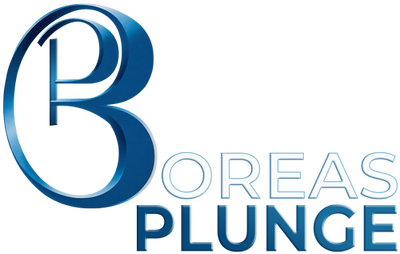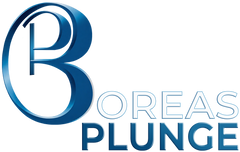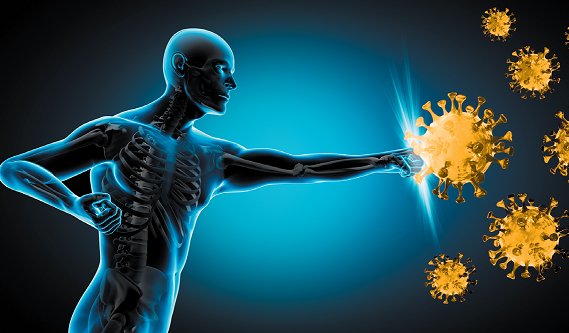Unlocking Your Potential: Proven Strategies to Enhance Athletic Performance

In the world of sports, the pursuit of excellence is a never-ending journey, one that transcends mere talent.
Whether you're a seasoned athlete or an enthusiastic beginner, understanding how to unlock your potential is crucial for achieving peak athletic performance.
This comprehensive guide delves into proven strategies that not only enhance physical capabilities but also foster mental resilience, nutritional awareness, and effective recovery techniques.
Prepare to elevate your game and embrace the principles that can lead you towards your ultimate athletic goals.
View Our Luxury Cold Therapy Products 
Key Takeaways
- Understanding the fundamentals of athletic performance is crucial for any athlete.
- Physical training is essential for enhancing overall athletic abilities and performance.
- Mental strategies are equally important and can significantly influence performance outcomes.
- Nutrition plays a vital role in an athlete's ability and should be prioritized for optimal performance.
- Injury prevention and goal-setting are key components for long-term success in athletics.
Understanding Athletic Performance: The Fundamentals
Athletic performance is a multifaceted concept that encapsulates an athlete's physical abilities, mental fortitude, and skillful execution of their sport.
To truly understand athletic performance, one must delve into the fundamentals that contribute to peak achievements.
This includes refining physical attributes such as strength, endurance, speed, and flexibility, all of which are crucial for executing sports-specific movements effectively.
Equally important is the mental aspect; athletes must cultivate focus, resilience, and the ability to perform under pressure.
Moreover, nutritional strategies play a significant role in enhancing athletic performance, as the right fuel helps sustain energy levels and supports recovery.
By grasping these foundational elements, athletes, coaches, and enthusiasts can better appreciate the intricate tapestry that defines athletic performance, thereby inspiring a more profound commitment to training and personal development.
The Role of Physical Training in Performance Enhancement
The role of physical training in performance enhancement cannot be overstated, especially for athletes striving to reach their peak potential.
Through systematic physical training, athletes can significantly improve their athletic performance by developing strength, endurance, flexibility, and agility.
Each training regimen is strategically designed to target specific muscle groups and energy systems, ensuring that an athlete not only enhances their overall fitness but also refines the skills necessary for their sport.
Importantly, tailored training programs that include a variety of exercises—such as resistance training, cardiovascular workouts, and plyometrics—are crucial in building a well-rounded athlete.
Moreover, incorporating recovery and nutrition into training is essential; they play a vital role in the body’s ability to adapt and grow stronger over time.
By understanding the science behind physical training, athletes can make informed decisions that contribute to their success on the field, court, or track, ultimately leading to improved athletic performance.
'The only way to prove you are a good sport is to lose.' - Ernie BanksView Our Luxury Cold Therapy Products

Mental Strategies for Optimal Athletic Performance
In the world of sports, athletic performance is often viewed through the lens of physical prowess and technical skill.
However, mental strategies play a crucial role in achieving peak performance.
Mental conditioning techniques such as visualization, goal-setting, and mindfulness can significantly enhance an athlete's focus, resilience, and overall performance.
For instance, visualization involves imagining oneself executing movements perfectly and succeeding in competitions, which can condition the mind to respond positively under pressure.
Goal-setting, whether through SMART criteria (Specific, Measurable, Achievable, Relevant, Time-bound) or simple short and long-term targets, provides athletes with a clear roadmap to success, energizing their training sessions and competitions.
Additionally, practicing mindfulness helps athletes develop a better awareness of their thoughts and feelings, allowing them to manage stress and maintain composure in high-stakes situations.
By integrating these mental strategies into their training regimens, athletes can unlock their full potential and consistently improve their athletic performance.
Nutrition and Its Impact on Athletic Ability
Nutrition plays a critical role in enhancing athletic performance, serving as the foundation upon which athletes build their stamina, strength, and overall skill levels.
Proper nutrition fuels the body, equips it to withstand rigorous training regimens, and aids in quicker recovery.
Athletes must focus on consuming a balanced diet rich in carbohydrates, proteins, healthy fats, vitamins, and minerals to support their energy needs and optimize muscle recovery.
For instance, carbohydrates are essential for replenishing glycogen stores, while protein aids in muscle repair and growth.
Hydration is equally pivotal; sufficient fluid intake helps maintain optimal performance and prevents fatigue.
By prioritizing nutrition, athletes can not only enhance their endurance and speed but also reduce the risk of injury, ultimately propelling their athletic performance to unprecedented heights.
Embracing this holistic approach to nutrition is not merely about surviving the rigors of competition but thriving and reaching peak potential.

Injury Prevention and Recovery Techniques
Injuries can be a significant setback for athletes striving for peak athletic performance, but implementing effective injury prevention and recovery techniques can help mitigate these risks.
One vital strategy is incorporating a balanced warm-up routine that includes dynamic stretches, which prepares muscles for the demands of physical activity and enhances overall agility.
Furthermore, cross-training can prevent overuse injuries by diversifying the muscles used in training—this approach not only improves athletic performance but also keeps the athlete engaged and motivated.
Recovery is equally crucial; techniques such as active recovery, proper hydration, and nutrition can accelerate healing and maintain muscle health.
Utilizing methods like foam rolling and cold therapy further aids in reducing muscle soreness and inflammation, promoting quicker recovery times.
By prioritizing these injury prevention and recovery techniques, athletes can maintain their focus on improving their athletic performance, ensuring they stay on the path to success.
Setting Goals and Tracking Progress for Continuous Improvement
Setting goals is a crucial step in enhancing athletic performance, as it provides direction and motivation for athletes at any level.
To begin, it’s important to establish both short-term and long-term goals that are specific, measurable, attainable, relevant, and time-bound (SMART).
This method allows athletes to have clear milestones to aim for while ensuring that their objectives are realistic and aligned with their overall aspirations.
Once goals are set, tracking progress becomes paramount.
Utilizing training logs, performance metrics, and regular assessments can offer valuable insights into how an athlete is advancing toward their goals.
Furthermore, this continuous monitoring enables opportunities for reflection and adjustment, making it easier to identify effective strategies or areas for improvement.
Celebrating small victories along the way not only boosts morale but also fosters a growth mindset, essential for anyone serious about elevating their athletic performance.
Remember, the journey towards excellence is ongoing, and by continually setting goals and tracking progress, athletes can ensure they are always pushing their limits and striving for greatness.
Frequently Asked Questions
What are the fundamental components of athletic performance?
Athletic performance is influenced by several key components including physical fitness, skill level, mental toughness, and recovery strategies.
Understanding these fundamentals is crucial for any athlete looking to enhance their performance.
How can physical training improve my athletic performance?
Physical training enhances athletic performance by building strength, endurance, flexibility, and speed.
Structured training programs tailored to specific sports can help athletes develop the necessary physical attributes to excel.
What mental strategies can help improve my athletic performance?
Mental strategies such as visualization, positive self-talk, and goal setting can significantly improve focus and motivation.
Practicing mindfulness and stress management techniques can also enhance performance under pressure.
How does nutrition affect athletic performance?
Nutrition plays a critical role in athletic performance; a balanced diet provides the necessary fuel for optimal energy levels, supports recovery, and promotes overall health.
Proper hydration and nutrient timing are also essential for peak performance.
What are effective injury prevention and recovery techniques?
Effective injury prevention methods include proper warm-up routines, strength training, and flexibility exercises.
For recovery, techniques such as rest, physiotherapy, and active recovery strategies can help athletes bounce back more quickly and avoid future injuries.




